Endless cornfields, apricot trees, and probably more tractors than cars. The Serbian agriculture is still settled in little villages. As a visitor, this looks very much like an older world, and we finally got an idea about where all the apples in our supermarkets might come from!
Serbia is not a part of the European Union like most of it’s neighbors, and there are many other things that makes the Serbian history unique and interesting. It is not more than 10 years since the war was on in this region, and by talking to people we understand that there are still partly some disagreement between people from the former Yugoslavia.
We arrived in Belgrade with a Bulgarian wrestling trainer. We stayed in a hostel and spent 2 days in the city. We found ourselves most interested in the Nicola Tesla museum (above) built up in Belgrade as the great inventor was born in Serbia. This is the right place to understand the modern ideas of Nicola Tesla, who didn’t get to actually experience it all in reality as he died in 1943. Unfortunately we couldn’t get in to the National museum because of reconstructions (apparently since 4 years, there is no knowledge about any opening within foreseeable time).
The air pollution is quite bad in the city, something that makes it a bit uncomfortable to discover. But walking to the great fortress Kalemegdan 125 meters above sea level, or strolling around the market in the Bohemian Quarter is very nice! The amount of fresh fruit and vegetables is impressive and there is fresh running water everywhere in town to wash of your delicious grapes before eating them. A good idea is to bring a local map, as all the road signs are written in the Serbian Cyrillic alphabet!
One mystery that we will never understand though is the huge Easter Europe flower shops that are always open 24 hours. We are still searching for the answer. Ideas about why, anybody?
It took a while to get out of the city and we were only 20 kilometers away, in Pancevo, when it started to get dark. This time, it was very hard to find a place that felt safe enough to camp for the night. When we got tired and hungry, we decided to walk into a local restaurant and ask for advice.
There was a private party going on in there, and we spoke to a waiter in a separate room. He told us we could camp on the backyard, so we did. Everybody working at the restaurant were very friendly and helpful.
As we didn’t want to disturb the private party, we went out in town for food. When we came back to brush our teeth before going to sleep, a girl from the party came up to us.
“Hello, I’m Aleksandra. We are celebrating my brother’s 18:th birthday. Would you like something to eat and drink?”
And for the second time that evening we ate, Aleksandra and her family served us wine and amazing local dishes, everything organic and it tasted lovely. Aleksandra was 19 years old, and just about to start her college for English and German studies. Later on we joined the rest of the party where we learned how to dance traditional dances, and we went on for hours. We were over 100 people, and we had a great time dancing on the chairs!
Thank you dear friends!
The day after, we got invited for espresso at the restaurant where the staff had done a hard job cleaning up after the amazing party. Then it was time for us to head towards Romania.
We met quite a lot of people with some sort of relation to Sweden, probably since there are many Serbs living in Sweden. Before we left the country, we met Milan Filipovic, a Swedish-speaking thai boxer working as a school guard (apparently very common in Serbia). Milan, who had a girlfriend in Helsingborg, told us that the children show him big respect and that it is important to have a guard in the school.
Even our very last driver to the border had a brother in Sweden, who he immediately called when he understood where we came from.
Serbia has certainly given us a fantastic time! Something different has started – it is more and more obvious that we are not at home. We have seen the importance for people to tell us about their country in a different way. For good reasons – the modern history during and after the war was never heard in our classrooms. The good thing is that you can to go to Serbia to teach yourself. You won’t get disappointed!
хвала/Thank you
- Kencho, for transporting us to Belgrade much earlier than we could ever hope to
- Archive Restaurant, for your hospitality, great food and coffee. You helped us a lot!
- Aleksandra with family and friends, for invinting us to your celebration. You showed us a great part of Serbia. Keep dancing!
- Mila the truck driver, for a safe ride and the best possible communication over the language barriers
- Milan the thai boxer, for inviting us to the school, buying us drinks and speeking to us in our own language
- The friendly man with a brother in Sweden for driving us to the border
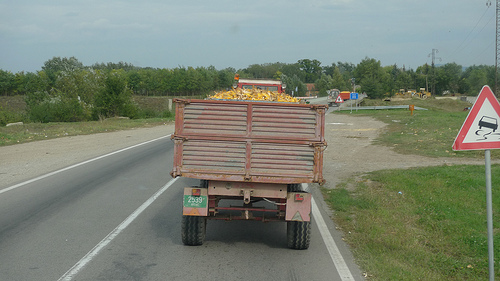
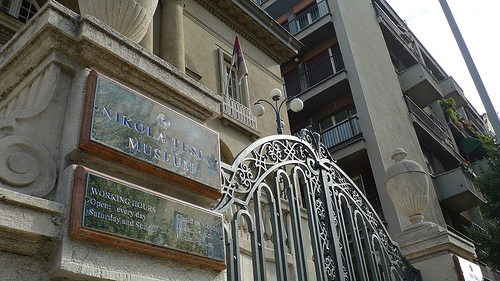
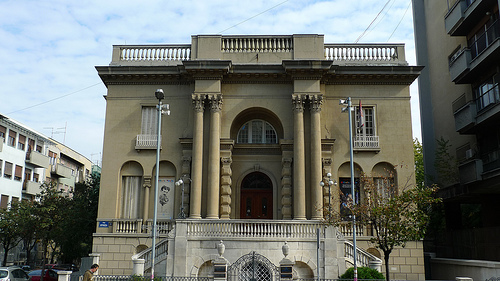
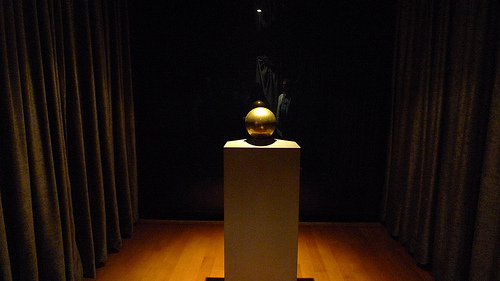
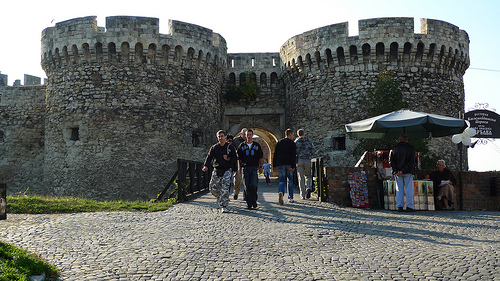
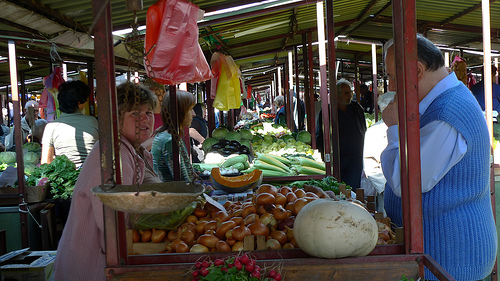
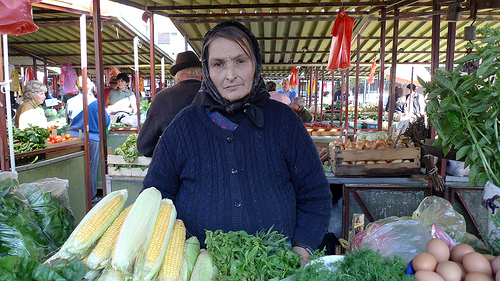
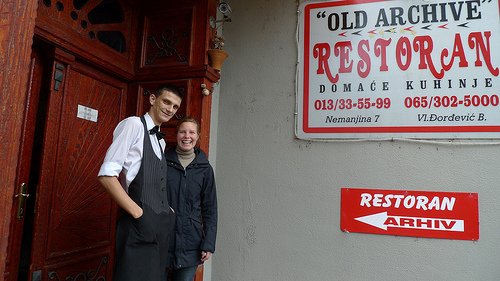
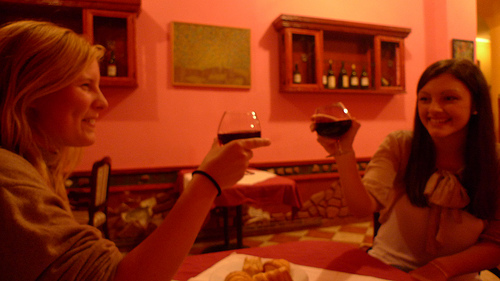
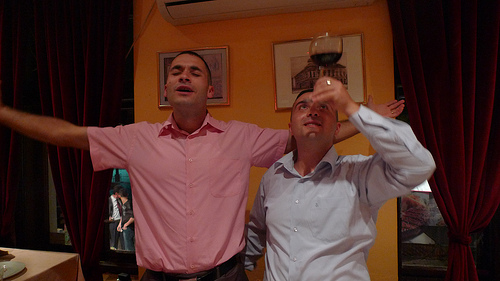
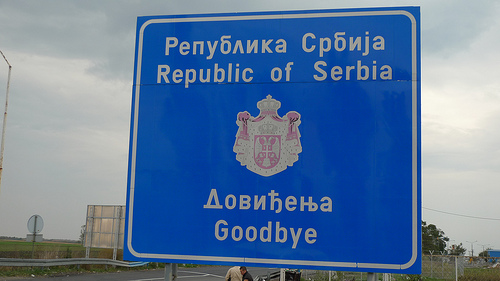
Fantastiskt Robin och Amanda! Det är för att ni är ni som gör att mötena blir så bra .Kraaam
Tack Kim! Så tänker vi också :)